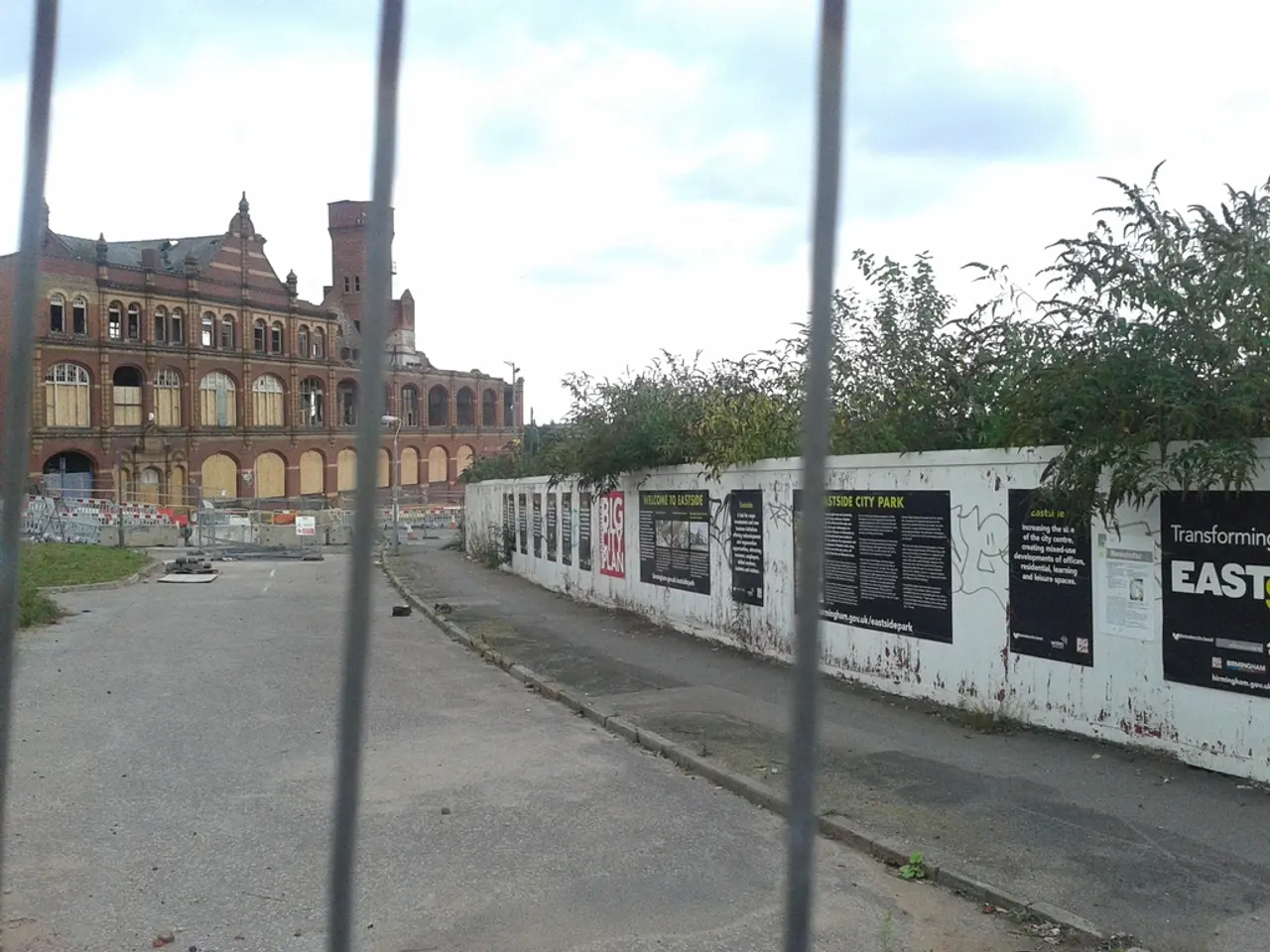Contentious Calgary rezoning discussion gains momentum as additional districts consider limiting property usage
Calgary's citywide rezoning policy, implemented in August 2024, has sparked a heated debate, particularly in neighbourhoods such as Charleswood and Brentwood. The policy, aimed at accelerating housing supply and densification, has met resistance from residents who are concerned about impacts on parking, privacy, and property values.
Residents in these communities are exploring the use of restrictive covenants as a tool to push back against the rezoning. Restrictive covenants are private legal agreements that property owners can use to limit or control the types of development or land use changes within their neighbourhood. Advocates argue that this restores some property rights to homeowners, allowing them to have a say in local development beyond municipal rezoning rules.
The citywide rezoning policy has enabled nearly half or 45% of all new low-density housing development permits in established neighbourhoods. It allows a variety of housing types, including single-detached, semi-detached, duplexes, and rowhouses, on a single property. However, the policy has become a flashpoint ahead of the October 2025 municipal election, with several mayoral candidates pledging to repeal it.
The controversy is between the city's push for denser, faster housing development and residents’ attempts to maintain neighbourhood character and control over local development. Brentwood and Charleswood would be joining residents in 11 other communities in using restrictive covenants, according to lawyers at Carbert Waite. Other communities using restrictive covenants include Varsity, Lakeview, and Lake Bonavista.
The Calgary Real Estate Board (CREB) has reaffirmed its opposition to the policy in its YYC Votes 2025 campaign. CREB outlined its support for sustainable community growth and responsible municipal spending, while looking for an alternative to the citywide rezoning policy. Inventory for rowhouses in Calgary jumped 22% since June of last year, with semi-detached inventory climbing just shy of 20%.
The debate highlights tensions over property rights, urban growth, housing affordability, and local democracy. As the municipal election approaches, it is expected to be a hot button issue, with three candidates running for mayor vowing to repeal the policy. The benchmark price of a rowhouse in Calgary is $450,300, down 3.1%. The benchmark housing price in Calgary was $586,200 in June, down nearly 4% year-over-year.
Ward 8 Coun. Courtney Walcott raised a concern with the growing trend of communities seeking restrictive covenants. Walcott, who is not running for re-election in the next municipal election, which is on Oct. 20, 2025, expressed concerns about the potential implications of widespread use of restrictive covenants on the city's overall growth and development plans.
Valerie Laferriere, who chairs the Brentwood Charleswood RC Initiative, stated that residents are frustrated with new and proposed developments under the citywide rezoning policy. Laferriere said that the mid-block, high-density, 60-per cent lot coverage, 12-metres-high developments are what residents are done with. The city claims that the rezoning resulted in faster housing starts by several thousand units without necessarily increasing total construction beyond what was planned.
The issue is politically charged and expected to influence the upcoming municipal elections. As the debate continues, both sides are looking for solutions that balance the need for housing growth with residents' concerns about neighbourhood character and property rights.
Finance and investing in Calgary's real-estate market have become volatile due to the ongoing debate about the citywide rezoning policy, particularly in neighborhoods such as Charleswood and Brentwood. The policy's impact on property values, as well as the city's overall growth and development plans, are becoming critical factors for potential investors to consider when making decisions.
Local politics are significantly affected by the controversy surrounding the citywide rezoning policy, as several mayoral candidates have pledged to either repeal or modify it, promising to maintain neighbourhood character and protect property rights. This issue is expected to play a significant role in the upcoming municipal elections, making it a critical factor for political analysts and investors alike to monitor closely.




